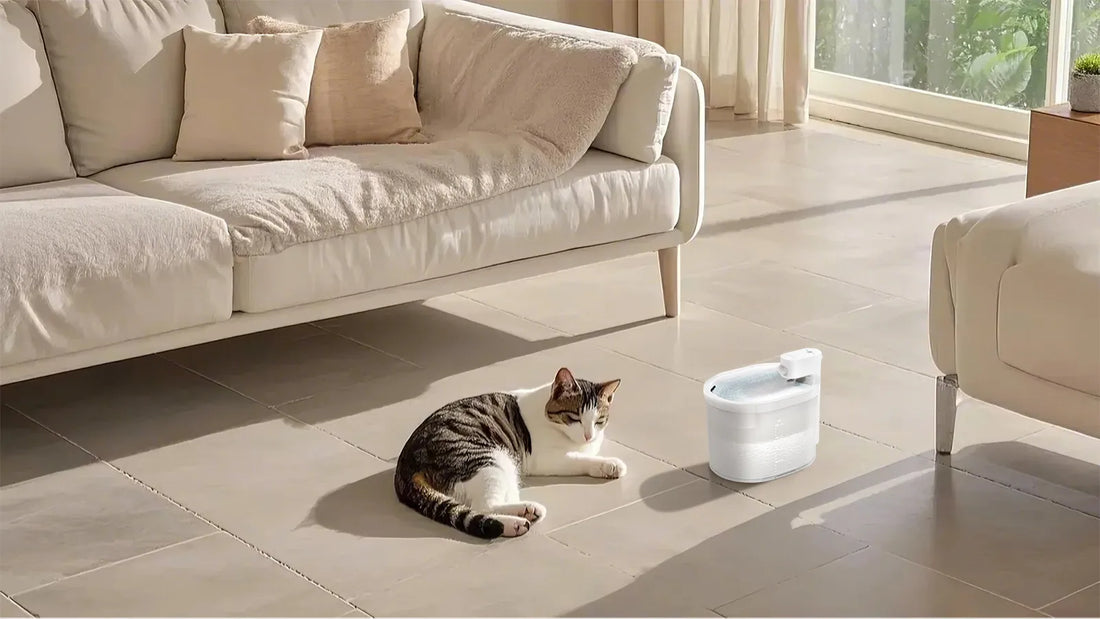If you've noticed that your cat is eating and drinking but not peeing, it's natural to feel concerned. This behavior can be a sign of an underlying health issue that requires immediate attention. In this article, we'll explore the possible causes, symptoms to watch for, and steps you can take to help your cat.
Understanding the Basics of Feline Urination
Cats typically urinate two to four times a day, depending on their diet, hydration levels, and overall health. When a cat stops urinating, it can indicate a serious problem, such as a urinary tract obstruction, kidney disease, or other medical conditions. Understanding the basics of feline urination can help you identify when something is wrong.
Common Causes of a Cat Not Peeing
There are several reasons why your cat might be eating and drinking but not peeing. Some of the most common causes include:
Urinary Tract Obstruction
A urinary tract obstruction is a life-threatening condition that occurs when something blocks the flow of urine. This can be caused by crystals, stones, or inflammation in the urinary tract. Male cats are particularly susceptible to this condition due to their narrower urethra.
Kidney Disease
Kidney disease can lead to a decrease in urine production. Cats with kidney disease may still drink water but produce little to no urine. This condition can be acute or chronic and requires veterinary intervention.
Dehydration
Dehydration can also cause a cat to stop urinating. Even if your cat is drinking water, they may not be consuming enough to stay properly hydrated. Dehydration can be caused by illness, heat, or insufficient water intake.
Stress or Anxiety
Stress or anxiety can sometimes lead to changes in a cat's urination habits. If your cat is stressed, they may avoid using the litter box altogether. Identifying and addressing the source of stress is crucial.
Symptoms to Watch For
In addition to not urinating, there are other symptoms you should be aware of that may indicate a serious health issue. These include:
- Straining to urinate
- Crying or vocalizing while trying to urinate
- Blood in the urine
- Lethargy or weakness
- Loss of appetite
- Vomiting
If you notice any of these symptoms, it's important to seek veterinary care immediately.
What You Can Do to Help Your Cat
If your cat is eating and drinking but not peeing, there are several steps you can take to help them:
Monitor Their Behavior
Keep a close eye on your cat's behavior and note any changes. This information can be valuable for your veterinarian when diagnosing the issue.
Encourage Hydration
Ensure your cat has access to fresh, clean water at all times. You can also try offering wet food, which has a higher moisture content than dry food.
Create a Stress-Free Environment
If stress or anxiety is a factor, try to create a calm and comfortable environment for your cat. Provide plenty of hiding spots, scratching posts, and toys to keep them entertained.
Seek Veterinary Care
If your cat hasn't urinated in 24 hours or is showing other concerning symptoms, it's crucial to seek veterinary care immediately. A veterinarian can perform diagnostic tests to determine the underlying cause and recommend appropriate treatment.
Preventative Measures
Preventing urinary issues in cats involves a combination of proper diet, hydration, and environmental management. Here are some tips to help keep your cat's urinary system healthy:
- Provide a balanced diet that supports urinary health
- Ensure your cat has access to fresh water at all times
- Keep the litter box clean and accessible
- Reduce stress by providing a stable and enriching environment
- Schedule regular veterinary check-ups to catch any potential issues early
By taking these preventative measures, you can help reduce the risk of urinary problems in your cat.
When to Seek Emergency Care
If your cat is eating and drinking but not peeing, it's important to know when to seek emergency care. A urinary tract obstruction, for example, can be fatal if not treated promptly. If your cat is showing signs of distress, such as crying, straining, or lethargy, don't wait—seek veterinary care immediately.
Remember, your cat's health and well-being depend on your ability to recognize and respond to potential issues. By staying informed and proactive, you can help ensure your feline friend stays happy and healthy.
If you're worried about your cat's urination habits, don't hesitate to take action. Early intervention can make all the difference in preventing serious health complications. Your cat relies on you to be their advocate, so stay vigilant and seek help when needed.













